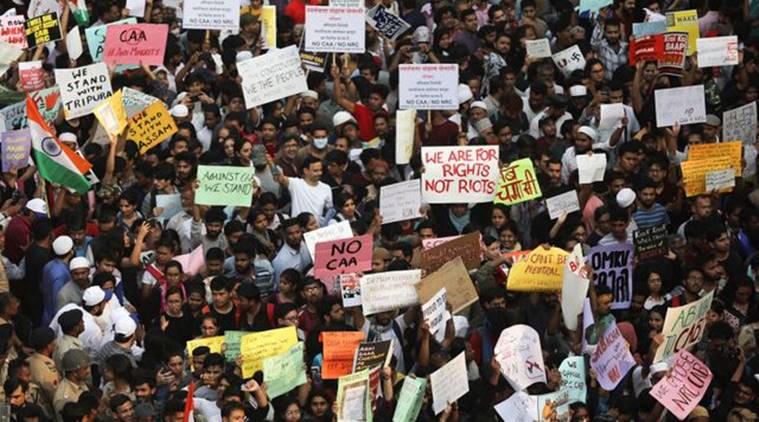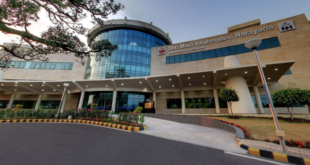
Ashish Kumar
Among much furor in the Parliament, civil society and concerned groups, the ruling dispensation managed to pass the much controversial Citizen Amendment Bill. Now an Act, it tends to provide citizenship rights to the persecuted minority communities I.e. Hindus, Sikhs, Buddhists, Jains, Parsis and Christians from three neighboring countries i.e Pakistan, Afghanistan and Bangladesh which are all Islamic republics. However this is an extraordinary enabling provision for the aforementioned communities given that they had an abysmal human rights records in their native countries. The earlier provision is still alive under which anybody who is permanently residing in India for a period of 11 years can apply for Indian citizenship. What CAA has done is that it has reduced it for a certain persecuted groups for the period of 5 years. As of now India does not have any Refugee Policy. The CAA in this regard can be seen as an incremental step towards leading to a full fledged Refugee policy.
Does it affects the secular credentials of India?
Going into semantics of secularism is complex as there are different brands of secularism. Our Constitution vouches on the positive connotation of the term which stresses on equal state respect and support for every religion against the western brand of secularism which postulates complete separation of state and religion. Our constitution framers implicitly adopted the Indian brand of secularism as the Indian society was multi-religious and heterogeneous.
CAA talks about giving citizenship and not taking it from anybody. The protests across India which we got to see in past few days are primarily based on inhibitions of Muslims pertaining to Home Minister’s remark that the government would soon come out with a nation-wide NRC. The NRC exercise which was carried out in Assam under Supreme Court monitoring was finally called off by the government. It was seen that there were many follies associated with the final list and many bonafide Indians were seen missing from the list.
The CAA per say is not problematic but nation-wide NRC on the lines of one carried out in Assam is actually the problem.
However Home Minister has nowhere mentioned that the government will carry out NRC across India on the template which was used to come up with the final NRC list in Assam. However he has continuously reiterated that NRC is on cards. Illegal infiltration from Bangladesh is definitely an issue and it can have significant security threats in times to come in addition to burden on precarious resources for already overpopulated country like India but the government should come out with proper robust framework with wide consultations with academia, civil society and other interest groups so as to allay the fear of the minorities. However the security of the sovereign along with keeping the human rights upright is the need of the hour and the government has to do tight-rope walking from hereon.
The proponents of the nation-wide NRC are of the view that a separate Act would be drafted for a pan India NRC and the template used in Assam won’t be emulated across India. However the government is yet to have it’s word on the draft pan India NRC and any speculation as of now is not going to be of much help.
The NRC saga.
NRC is a byproduct of Assam Accord which was signed between erstwhile Prime Minister of India Rajiv Gandhi and leaders of Assam movement in 1985. The Assam movement was primarily due to heavy influx of foreigners, mainly Bangladeshis. The native Assamese saw it as cultural and demographic infiltration and there was massive protest across state which led to signing of the Assam Accord. So NRC was an instrument to weed out infiltrators which over the period of time echoed in other states as well and now the government has also given subtle hints that it might carry out pan-India NRC in coming times.
The substantial fear among the Indian citizenry pertaining to illegal Bangladeshi infiltrators changing the demography in various regions across India has given popular legitimacy to the the idea of nation-wide NRC. The proponents argue that the illegal intruders tend to eat up blue-collar jobs, are constraint over nation’s resources which otherwise is meant for the Indian nationals and have over the period of time obtained various government documents like ration cards, Aadhar cards and voter IDs. It has also been alleged that they are now instrumental in shaping the electoral fate of certain constituencies across India. However no empirical study has been carried out to gauge the impact. This very reason led the government to go down the ancestry linkages though it was implemented in a very ill-thought and hasty manner as we have seen the Assam exercise.
A detailed draft from the government side would be of great help so as to mobilise the opinions and inputs from the civil society. Also the government should take on board all the relevant stakeholders while drafting any such bill in future. If it is coming then it has to be democratic, paying due heed to human rights and various other United Nations’ conventions.
The generous land.
India has been a cradle of civilisations. It has been rightly termed as melting pot of various ethnicity and religions. A common Indian is deeply entrenched in the idea of ‘Vasudhaiv Kutumbakam’. Hence it becomes an imperative for Indian state to oblige to the ‘non-refoulment’ principle of United Nations but at the same time it should also be careful about the threat perception emanating from across the border and security of its citizens. What government is going to do from hereon is needed to be monitored and active citizenry should actively contribute their two cents whenever the government is faltering.
 Jubilee Post News & Views
Jubilee Post News & Views




